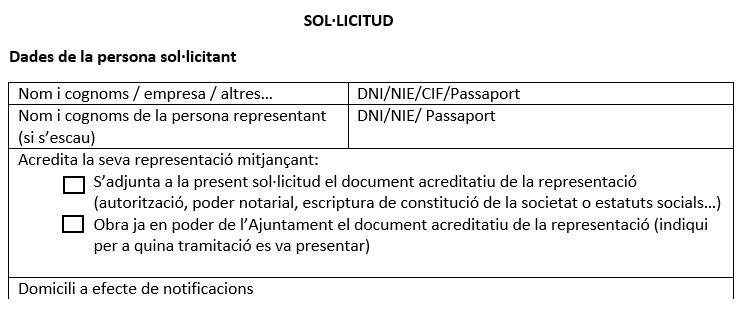Law 39/2015:
Article 5. Representation.
"3. In order to make requests, submit responsible statements or communications, file appeals, withdraw actions and waive rights on behalf of another person, representation must be proven. For acts and management of mere procedure, this representation is assumed.
4. The representation can be proven by any legally valid means that provides reliable evidence of its existence.
For these purposes, the representation effected by means of "apud acta" power of attorney made by personal appearance or electronic appearance at the corresponding electronic headquarters, or through the accreditation of its registration in the electronic register of powers of attorney of the Administration, is understood to be accredited competent public
5. The body competent to process the procedure must include in the administrative file the accreditation of the status of representative and of the powers recognized at that time. The electronic document that accredits the result of the consultation in the corresponding electronic power of attorney register has the condition of accreditation for these purposes.
6. The lack of accreditation or the insufficient accreditation of the representation does not prevent the act in question from being considered to have been carried out, as long as it is provided or the defect is repaired within the period of ten days that must grant the administrative body for the purpose, or a higher term when the circumstances of the case so require."
Article 6. Electronic records of powers of attorney.
"1. The General Administration of the State, the autonomous communities and local entities have a general electronic register of powers of attorney, in which at least those of a general nature granted "apud acta ", in person or electronically, by anyone who has the status of an interested party in an administrative procedure in favor of a representative, to act on their behalf before the public administrations. The validation of the power of attorney must also be stated. In the state level, this register is the Electronic Register of Powers of Attorney of the General Administration of the State."
The solution must guarantee the legal provision that is a register fully interoperable with other registers, while allowing the consultation of other similar administrative registers, the commercial register, the property register and the notarial protocols, which also have the obligation to be interoperable with the general and particular electronic registries of powers of attorney.
The entries in these records must contain, at least, the following information:
a) Name and surname or denomination or company name, national document
identity card, tax identification number or equivalent document of the power of attorney.
b) Name and surname or denomination or company name, national identity document, tax identification number or equivalent document of the authorized representative.
c) Registration date
d) Period of time for which the power of attorney is granted.
e) Type of power
Types of powers:
a) A general power
b) A power of attorney so that the proxy can act on behalf of the proxy in any administrative action before a specific Administration or Organization
c) A power of attorney so that the proxy can act on behalf of the power of attorney solely for the performance of certain procedures specified in the power of attorney.



